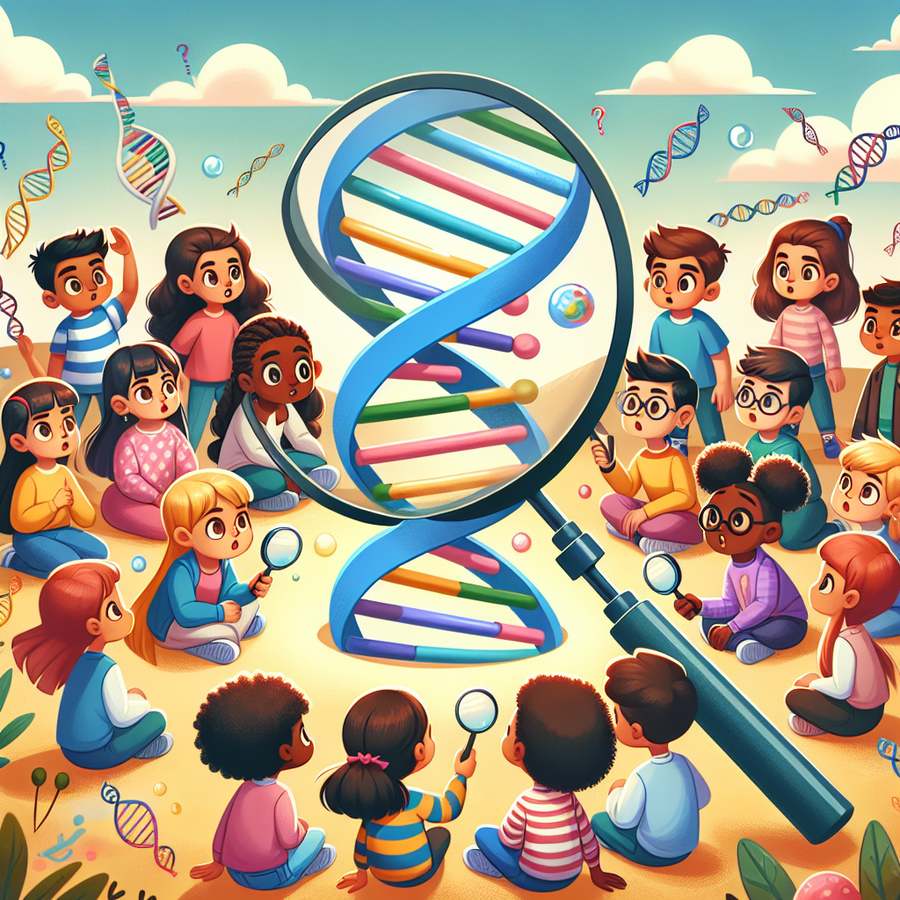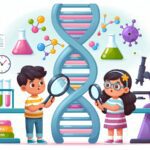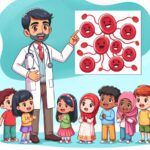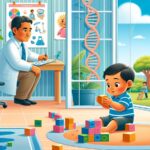Whole Genome Sequencing (WGS) represents a significant leap forward in our ability to understand the genetic makeup of a newborn. This comprehensive process decodes the entire genetic information contained within an individual’s DNA, offering unprecedented insights into potential health conditions, genetic disorders, and inherited traits. As new parents or soon-to-be parents, understanding the nuances of Whole Genome Sequencing can empower you to make informed decisions about your baby’s health and well-being.
What is Whole Genome Sequencing?
Whole Genome Sequencing is a cutting-edge genetic test that examines an individual’s complete DNA make-up. Unlike targeted tests that look for specific genes or markers, WGS analyzes all 3 billion pairs of an individual’s DNA, offering a full picture of one’s genetic landscape. This process can reveal information about a person’s predisposition to certain health conditions, potential responses to medications, and even ancestral background.
For newborns, Whole Genome Sequencing can be particularly valuable. It has the potential to identify genetic conditions early on, allowing for prompt intervention and management. Understanding your baby’s genetic predispositions can also guide lifestyle and health decisions throughout their life.
How Does Whole Genome Sequencing Work?
The process of Whole Genome Sequencing begins with a simple sample collection, usually a blood sample or a cheek swab from the baby. The DNA is then extracted from the sample and prepared for sequencing. Advanced technology sequences the DNA, decoding the billions of nucleotides (the building blocks of DNA) to compile the complete genetic makeup of the individual.
Once the sequencing is complete, bioinformatics analysis is performed. This involves using computer software to interpret the vast amounts of data generated, identifying any mutations or variations that may be present. The results are then compiled into a report, which can provide valuable insights into the baby’s health and potential genetic disorders.
Benefits of Whole Genome Sequencing for Newborns
Whole Genome Sequencing offers a multitude of benefits for newborns and their families. Perhaps most importantly, it can detect rare genetic disorders that might not be identified through standard newborn screening. Early detection of such conditions can be crucial for timely treatment and management, potentially improving the quality of life and long-term outcomes for affected children.
In addition to diagnosing rare conditions, Whole Genome Sequencing can provide insights into a baby’s susceptibility to more common diseases later in life, such as asthma or heart disease. This knowledge can help parents and healthcare providers tailor health and lifestyle strategies to mitigate these risks. Furthermore, understanding a child’s genetic makeup can inform personalized medicine approaches, ensuring that any medications or treatments administered in the future are safe and effective based on the child’s unique DNA.
Considerations Before Opting for Whole Genome Sequencing
While Whole Genome Sequencing offers significant benefits, there are also considerations to bear in mind. The cost of WGS can be high, and it may not always be covered by insurance. Additionally, interpreting the results requires specialized knowledge and expertise, and not all healthcare providers may be equipped to offer detailed explanations of the findings.
Another important consideration is the ethical implications of knowing one’s complete genetic information. Parents should carefully consider the implications of uncovering potentially distressing information about their child’s future health. It’s essential to have support systems in place and to discuss these considerations with healthcare providers before proceeding with Whole Genome Sequencing.
FAQs About Whole Genome Sequencing
For many parents, the concept of Whole Genome Sequencing raises a number of questions. How soon can WGS be performed on a newborn? Is the process safe? How long does it take to get the results? Generally, WGS can be performed soon after birth, and the process itself is non-invasive and safe. Results typically take a few weeks to process, given the complexity of the data analysis involved.
Regarding the safety and ethical considerations of Whole Genome Sequencing, it’s important to consult with a genetic counselor or a healthcare provider knowledgeable in genetics. They can provide guidance tailored to your family’s needs and help interpret the results in a meaningful way.
For further reading on the subject, families can visit the Baby Whys and Hows website, particularly the Whole Genome Sequencing page, which offers detailed information and resources. Additionally, the National Human Genome Research Institute provides comprehensive insights into whole genome sequencing and its implications.
In conclusion, Whole Genome Sequencing is a powerful tool that can offer valuable insights into a newborn’s health. By understanding what WGS entails, its benefits, and considerations, parents can make informed decisions about whether this genetic test is right for their family.
Remember, the journey to understanding your baby’s genetic makeup is a personal one, and there’s no one-size-fits-all answer. Discussing your options with healthcare providers, considering your family’s needs, and weighing the benefits against the costs and ethical considerations are all crucial steps in making the best decision for your baby’s future.













